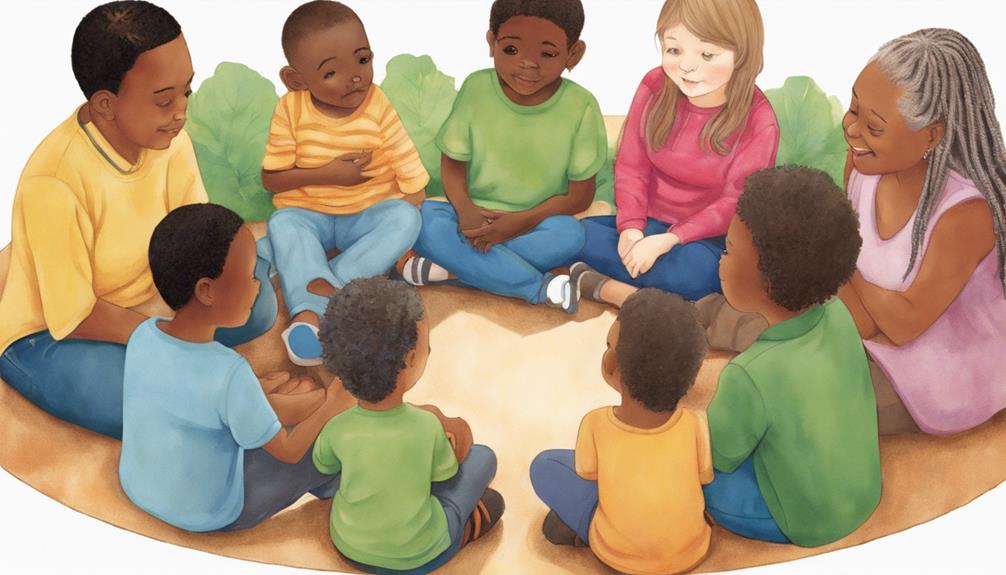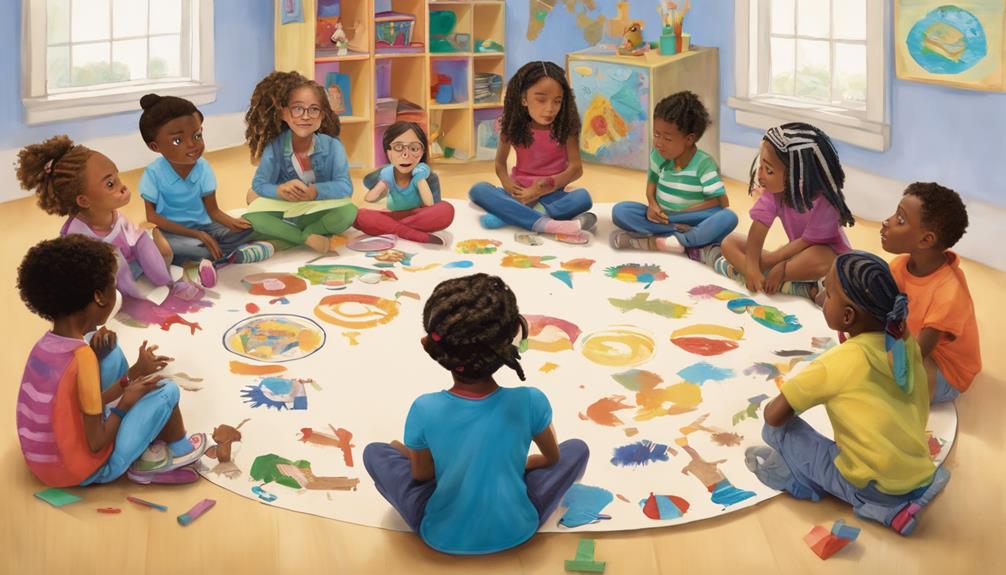As we grow older, many of us go through the emotional upheaval of our parents’ separation or divorce, navigating a whirlwind of emotions and uncertainties.
But what are some effective ways to navigate this challenging terrain from our perspective? By exploring coping strategies tailored to children, we can shed light on how to address these complex feelings and transitions in a healthy and constructive manner.
Let's uncover the key insights that can help us weather the storms of parental separation and divorce while fostering resilience and emotional well-being.
Key Takeaways
- Validate children's emotions to create a safe space for expression and emotional healing.
- Establish stable routines and consistent rules for security and normalcy post-parental separation.
- Encourage open communication and emotional expression to support children's well-being during divorce.
- Implement collaborative co-parenting strategies with effective communication and flexibility for the child's benefit.
Understanding Children's Emotional Responses
When children experience parental separation and divorce, they often navigate a rollercoaster of emotions, including sadness, confusion, fear, guilt, anger, and grief. These feelings can be overwhelming for children as they try to make sense of the changes happening within their family. Parents play a crucial role in helping children understand that their emotions are valid and providing them with the support they need during this challenging time. It's essential for parents to create a safe space where children feel comfortable expressing their feelings and asking questions about the divorce or separation.
Children's emotional responses to divorce or separation can vary greatly, but it's essential for parents to reassure them that they're loved and that the family will continue to support and care for them. By acknowledging and addressing children's emotions, parents can help alleviate some of the distress children may be feeling. It's important for children to know that they aren't alone in their feelings and that there are resources available to help them cope with the changes in their family dynamic.
Communication and Support Systems

Navigating through parental separation and divorce necessitates fostering open communication channels and establishing robust support systems to aid children in understanding and coping with the changes. Effective communication plays a crucial role in helping children feel supported during this challenging time. Providing honest and age-appropriate explanations about the separation reassures children and reduces their anxiety. Encouraging children to express their feelings openly creates a supportive environment for them to cope with the changes they're facing.
It's essential for parents to maintain a united front with the co-parent, showing consistent love and care to help children feel secure and valued amidst the changes happening in their family dynamics. Additionally, establishing support systems, such as counseling or peer groups, can further aid children in navigating the challenges of parental separation and divorce, providing them with additional resources and outlets for support and guidance.
Establishing Stability and Routine
As we focus on the importance of stability and routine for children during parental separation and divorce, establishing consistent household rules and expectations is key to helping them feel secure and understand boundaries in their changing family dynamic. Children thrive on predictability, especially during times of upheaval.
Here are some ways in which establishing stability and routine can positively impact children's lives:
- Set Consistent Rules: Clear and consistent rules provide a sense of structure and security.
- Establish Daily Routines: Having predictable daily routines can reduce anxiety and create a sense of normalcy.
- Family Bonding Time: Dedicate time for family activities to strengthen bonds and foster a sense of togetherness.
- Offer Positive Reinforcement: Acknowledge and praise positive behaviors to boost self-esteem and reinforce a sense of worth.
- Aid in Adjustment and Coping: Providing stability through routines and rules supports children in their adjustment and coping post-parental separation or divorce.
Encouraging Emotional Expression

Encouraging children to openly express their emotions is crucial in helping them navigate the complexities of parental separation and divorce. During this challenging time, children may experience a range of feelings such as sadness, confusion, fear, and anger. Providing a safe space for them to share these emotions can promote emotional healing and prevent them from bottling up negative feelings.
By actively listening to children without judgment, parents can create an environment where kids feel heard and understood. Validating their emotional experiences fosters trust and strengthens the parent-child bond, contributing to the child's overall well-being. Acknowledging and addressing children's emotions not only helps them develop healthy coping mechanisms but also enhances their emotional resilience in the face of parental separation.
Encouraging emotional expression in children is a powerful tool for supporting their emotional well-being during divorce. By creating a space where children feel safe to share their feelings, parents can help them process their emotions and adapt to the changes with greater ease.
Collaborative Co-Parenting Strategies
In collaborative co-parenting, both parents work together to prioritize the well-being of the child by making joint decisions. Effective communication, mutual respect, and flexibility play crucial roles in this approach. Co-parenting plans help outline responsibilities, schedules, and methods to handle disagreements in a constructive manner. Establishing consistent routines and clear boundaries contribute to creating stability for children within the co-parenting dynamic. By fostering a sense of predictability and security, collaborative co-parenting can provide children with the foundation they need to navigate the changes that come with parental separation or divorce.
- Effective communication
- Mutual respect
- Flexibility
- Co-parenting plans
- Consistent routines and clear boundaries
Frequently Asked Questions
How Can I Help My Child Cope With Separation and Divorce?
We can support our child through separation and divorce by listening, reassuring, and showing love. We should help them feel secure, maintain routines, and set clear expectations. Consistency and understanding are key to helping our child cope effectively.
How Do Children Typically Cope With Divorce?
We cope with divorce by feeling sad, fearful, guilty, and confused. Changes in family and worries about the future weigh on us. Seeking support from loved ones and activities we enjoy, plus keeping routines, help us cope.
How Do You Help a Child When Parents Separate?
We support children through parental separation by offering reassurance, emotional support, open communication, stable routines, active listening, and seeking professional help if necessary. Our goal is to provide comfort, understanding, and guidance during challenging times.
What Are Three Variables That Impact a Child's Ability to Cope With Separation and Divorce?
We believe that a child's ability to cope with separation and divorce is influenced by their age, parents' conflict level, and parent-child relationship quality. Understanding these variables helps us support children effectively during tough times.
Conclusion
In conclusion, by acknowledging our feelings, seeking support, maintaining stability, and encouraging open communication, we can navigate the challenges of parental separation and divorce.
Together, we can work through our emotions, build resilience, and create a positive environment for growth and healing.
Let's remember that we aren't alone in this journey, and with love, understanding, and collaboration, we can overcome any obstacles that come our way.










